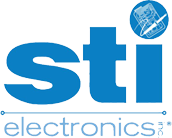This program provides a comprehensive standards expert certification that teaches inspection and assembly criteria for all three classes of cable and wire harness assembly. This training will familiarize the student with IPC/WHMA-A-620 “Requirements and Acceptance for Cable and Harness Assemblies” document to include the general requirements of the specification and related documents, the difference between the classes of product, and define the acceptance criteria for various conditions. An open book and closed book exam is required. Recertification is required every 2 years.
This program will greatly assist any company dedicated to providing quality training to the IPC-A-610 Acceptability Document. This training will familiarize the student with IPC-A-610 “Requirements and Acceptance for Electronic Assemblies” document to include the general requirements of the specification and related documents, the difference between the classes of product, and define the acceptance criteria for various conditions. An open book and closed book exam is required.
Recertification is required every 2 years to maintain certification.
This program provides a comprehensive operator certification that teaches inspection and assembly criteria for all three classes of cable and wire harness assembly. This course is modularized to allow for maximum flexibility in meeting individual training needs. This training will familiarize the student with IPC/WHMA-A-620 “Requirements and Acceptance for Cable and Harness Assemblies” document to include the general requirements of the specification and related documents, the difference between the classes of product, and define the acceptance criteria for various conditions. An open book exam is required after each Module. Recertification is required every 2 years.
The CIT program utilizes the images in the IPC-A-610 inspection document to provide visual accept/reject criteria examples for all three classes of assembly production (Tin/Lead and Lead Free). The sections include the following topics general information, foreword, applicable documents, handling, soldering and high voltage, component damage & PCBAs, terminals connections, through-hole technology and jumper wires, surface mount assemblies & jumper wires, and hardware. Upon completion of this class, students will be familiar with the IPC-A-610 acceptability criteria for all three classes of products and be able to apply this criterion to internal quality functions.
An open book and closed book exam is required. CITs are qualified to teach Certified IPC Specialist (CIS) training. Recertification is required every 2 years.
This program provides a comprehensive instructor certification that teaches inspection and assembly criteria for all three classes of cable and wire harness assembly. This training will familiarize the student with IPC/WHMA-A-620 “Requirements and Acceptance for Cable and Harness Assemblies” document to include the general requirements of the specification and related documents, the difference between the classes of product, and define the acceptance criteria for various conditions. An open book and closed book exam is required. CITs are qualified to teach Certified IPC Application Specialist (CIS) training. Recertification is required every 2 years.
The CIS program utilizes the images in the IPC-A-610 inspection document to provide visual accept/reject criteria examples for all three classes of assembly production (Tin/Lead and Lead Free). This course is modularized to allow for maximum flexibility in meeting individuals training needs. The modules include the following topics general information, foreword, applicable documents, handling, soldering and high voltage, component damage & PCBAs, terminals connections, through-hole technology and jumper wires, surface mount assemblies & jumper wires, and hardware. Upon completion of this class, students will be familiar with the IPC-A-610 acceptability criteria for all three classes of products and be able to apply this criterion to internal quality functions.
An open book exam is required after each module. Recertification is required every 2 years.
The CIS program utilizes the images in the IPC-A-610 inspection document to provide visual accept/reject criteria examples for all three classes of assembly production (Tin/Lead and Lead Free). This course is modularized to allow for maximum flexibility in meeting individuals training needs. The modules include the following topics general information, foreword, applicable documents, handling, soldering and high voltage, component damage & PCBAs, terminals connections, through-hole technology and jumper wires, surface mount assemblies & jumper wires, and hardware. Upon completion of this class, students will be familiar with the IPC-A-610 acceptability criteria for all three classes of products and be able to apply this criterion to internal quality functions. An open book exam is required after each module. Recertification is required every 2 years.
This class provides skill-based training regarding rework, repair and modification procedures covered in the IPC-7711 and IPC-7721 documents. This is a hands-on course. Section one is mandatory and consists of Common procedures. Sections 2-10 consist of; Wire Splicing Procedures, Conformal Coating, Through Hole component removal and installation, Chip and MELF removal and installation, Gull Wing removal and installation, J-lead removal and installation, BGA (Lecture only/Optional), Laminate Repair, and Circuit Repair. An open book and closed book exam is required. Recertification is required every 2 years.
This class provides skill-based training regarding rework, repair and modification procedures covered in the IPC-7711 and IPC-7721 documents. This is a hands-on course. Section one is mandatory and consists of Common procedures. Sections 2-10 consist of; Wire Splicing Procedures, Conformal Coating, Through Hole component removal and installation, Chip and MELF removal and installation, Gull Wing removal and installation, J-lead removal and installation, BGA (Lecture only/Optional), Laminate Repair, and Circuit Repair. An open book and closed book exam is required. Recertification is required every 2 years.
This program provides an in-depth look at the J-STD-001 document. The course reviews this document and helps students learn how to interpret the criteria. Section 1 is an introduction to the process requirements of J-STD-001, Section 2 focuses on wires and terminals, Section 3 covers PCB, Coating, Encapsulation and Staking, Section 4 emphasizes Through-Hole Technology, Section 5 emphasizes Surface Mount Technology and Section 6 focuses on Inspection, Inspection Methodology, and Process Control.
Open book and closed book exams are required. Hands-On training is not a requirement for CSE. Recertification is required every 2 years to maintain certification.

